
Alpbachtal: Austria's Hidden Gem in the Alps
Nestled in the heart of the Austrian Alps, Alpbachtal is a picturesque valley that offers visitors a perfect blend of natural beauty, rich cultural experiences, and outdoor activities. Known for its traditional wooden farmhouses and stunning mountain scenery, Alpbachtal is a haven for nature lovers and adventure seekers alike. Whether you are looking to hike through lush green meadows, explore charming alpine villages, or simply relax and take in the breathtaking views, Alpbachtal has something for everyone. The valley is home to the charming village of Alpbach, often called the 'most beautiful village in Austria.' With its flower-adorned balconies and rustic charm, Alpbach is a delightful place to wander and discover local traditions. The village also hosts various cultural events and festivals throughout the year, providing a unique insight into the region's heritage. For those seeking adventure, Alpbachtal offers a wide range of outdoor activities. In the summer, visitors can enjoy hiking, mountain biking, and paragliding, while the winter months transform the valley into a winter sports paradise with skiing, snowboarding, and snowshoeing. The nearby Alpbachtal Seenland region also boasts pristine lakes perfect for swimming and boating during the warmer months. Alpbachtal's culinary scene is another highlight, with traditional Tyrolean cuisine taking center stage. Visitors can savor hearty dishes like Tiroler Gröstl and Kaiserschmarrn in cozy mountain huts and restaurants. The valley's commitment to sustainability and preserving its natural beauty ensures that visitors can enjoy a pristine and unspoiled environment. Whether you are looking for a peaceful retreat or an action-packed holiday, Alpbachtal offers an unforgettable experience in the heart of the Austrian Alps.
Local tips in Alpbachtal
- Visit in late spring or early autumn for fewer crowds and beautiful scenery.
- Use the Alpbachtal Seenland Card for free access to many local attractions and activities.
- Stay in a traditional farmhouse for an authentic experience.
- Don't miss the weekly farmer's market in Alpbach for local produce and crafts.
- Pack layers, as mountain weather can change quickly.
Alpbachtal: Austria's Hidden Gem in the Alps
Nestled in the heart of the Austrian Alps, Alpbachtal is a picturesque valley that offers visitors a perfect blend of natural beauty, rich cultural experiences, and outdoor activities. Known for its traditional wooden farmhouses and stunning mountain scenery, Alpbachtal is a haven for nature lovers and adventure seekers alike. Whether you are looking to hike through lush green meadows, explore charming alpine villages, or simply relax and take in the breathtaking views, Alpbachtal has something for everyone. The valley is home to the charming village of Alpbach, often called the 'most beautiful village in Austria.' With its flower-adorned balconies and rustic charm, Alpbach is a delightful place to wander and discover local traditions. The village also hosts various cultural events and festivals throughout the year, providing a unique insight into the region's heritage. For those seeking adventure, Alpbachtal offers a wide range of outdoor activities. In the summer, visitors can enjoy hiking, mountain biking, and paragliding, while the winter months transform the valley into a winter sports paradise with skiing, snowboarding, and snowshoeing. The nearby Alpbachtal Seenland region also boasts pristine lakes perfect for swimming and boating during the warmer months. Alpbachtal's culinary scene is another highlight, with traditional Tyrolean cuisine taking center stage. Visitors can savor hearty dishes like Tiroler Gröstl and Kaiserschmarrn in cozy mountain huts and restaurants. The valley's commitment to sustainability and preserving its natural beauty ensures that visitors can enjoy a pristine and unspoiled environment. Whether you are looking for a peaceful retreat or an action-packed holiday, Alpbachtal offers an unforgettable experience in the heart of the Austrian Alps.
When is the best time to go to Alpbachtal?
Iconic landmarks you can’t miss
Alpbacher - Talstation Wiedersbergerhornbahn
Discover the breathtaking beauty of Alpbacher with stunning views and thrilling hiking adventures at the Talstation Wiedersbergerhornbahn.
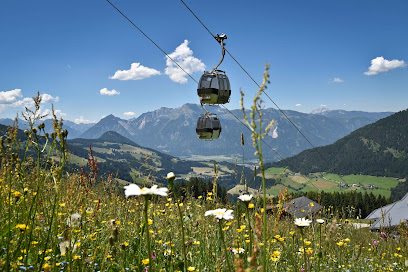
Der Böglerhof - pure nature spa resort
Experience the ultimate in relaxation and rejuvenation at Der Böglerhof, a luxurious spa resort set amidst the breathtaking beauty of Alpbach's mountains.

Ski Juwel Alpbachtal Wildschönau
Experience the ultimate winter adventure at Ski Juwel Alpbachtal Wildschönau, where breathtaking landscapes and thrilling slopes await every ski enthusiast.
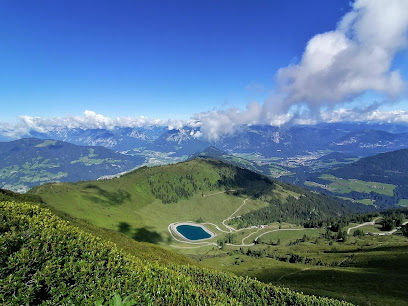
Matzenpark
Experience the serene beauty of Matzenpark in Reith im Alpbachtal, a perfect escape for nature lovers and families seeking tranquility in stunning surroundings.
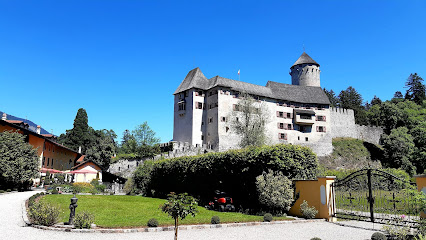
Lauserland
Experience the joy of family fun at Lauserland, a captivating playground nestled in the stunning Tyrolean Alps, perfect for children and adults alike.
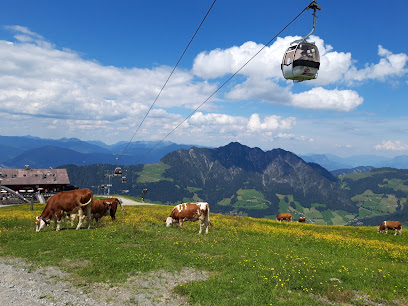
Alpbachtaler Lauser-Sauser
Discover the exhilarating Alpbachtaler Lauser-Sauser, a summer toboggan run that promises breathtaking views and thrilling adventures in the heart of the Austrian Alps.
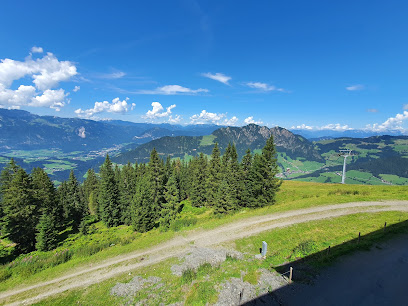
Juppi Zauberwald
Explore Juppi Zauberwald, a magical playground in Reith im Alpbachtal, designed for endless family adventures and unforgettable memories.
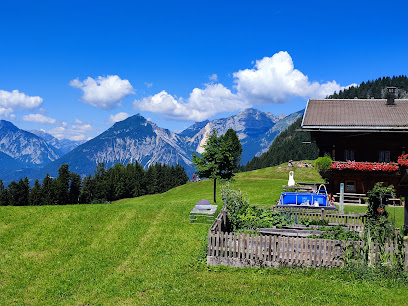
Blick in die Zillertaler Alpen
Experience the breathtaking views at Blick in die Zillertaler Alpen, an unforgettable scenic spot in the heart of the Austrian Alps.
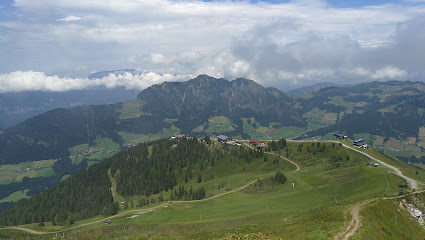
Top of Alpbachtal
Experience the breathtaking alpine views at the Top of Alpbachtal, an unforgettable observation deck in the heart of Tyrol's stunning landscapes.
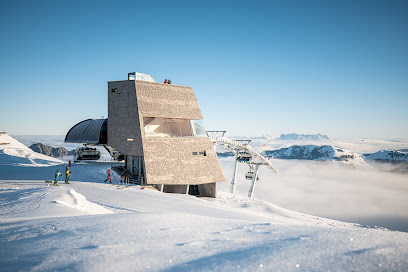
St. Oswald Catholic Church
Discover the serene beauty of St. Oswald Catholic Church in Alpbach, a perfect blend of spirituality and Tyrolean architecture amidst stunning mountain landscapes.
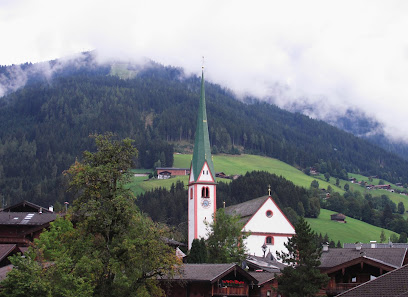
Alpbachtal Tourismus - Tourismusbüro Alpbach
Explore Alpbach's stunning landscapes and rich culture at the Alpbachtal Tourismus office, your essential guide to Tyrolean adventures.
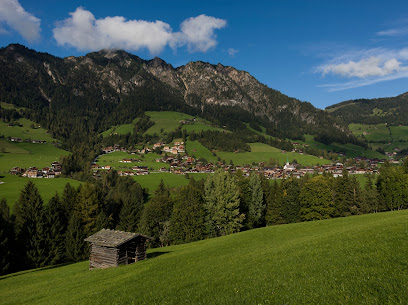
Bergbauernmuseum
Explore the Bergbauernmuseum in Alpbach for a deep dive into Tyrolean agricultural heritage and traditional rural life, set against breathtaking alpine scenery.
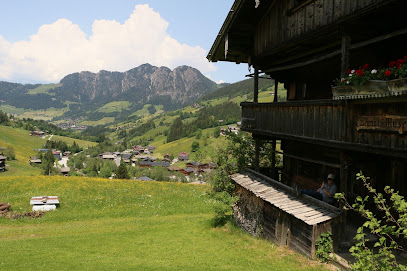
Speicherteich
Experience the breathtaking beauty of Speicherteich, a serene hiking area in Alpbach, Austria, perfect for nature lovers and outdoor enthusiasts.
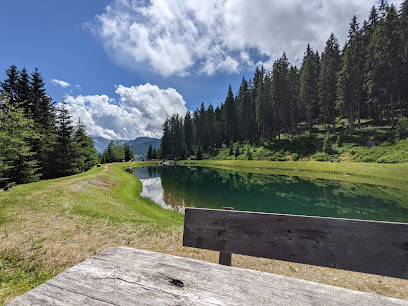
Wildwasserlauf
Discover the thrill of white-water rafting at Wildwasserlauf in Reith im Alpbachtal, where adventure meets breathtaking alpine scenery.
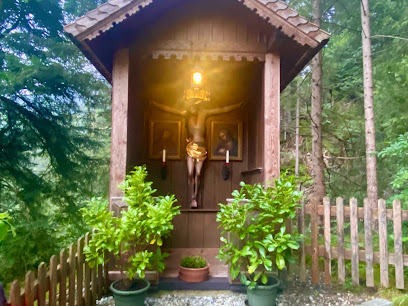
Musikkapelle
Experience the vibrant cultural scene at Musikkapelle in Alpbach, where local music and stunning alpine views create unforgettable memories.
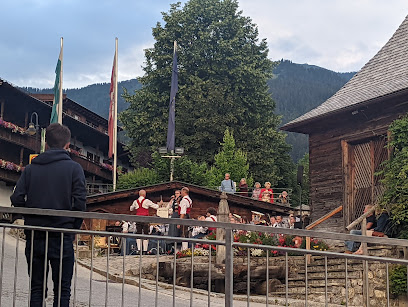
Unmissable attractions to see
Alpbacher - Talstation Wiedersbergerhornbahn
Discover the breathtaking beauty of Alpbach at the Talstation Wiedersbergerhornbahn, your gateway to unforgettable alpine adventures and stunning vistas.
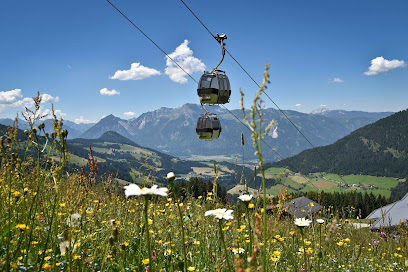
Camping Seespitz
Experience the tranquility of Camping Seespitz, a premier campground in Walchsee, Austria, surrounded by stunning alpine scenery and outdoor adventures.
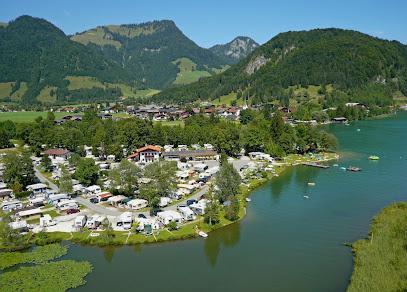
Ferienpark Terrassencamping Süd-See
Discover the perfect blend of adventure and tranquility at Ferienpark Terrassencamping Süd-See, nestled by the beautiful Walchsee in the Tyrolean Alps.
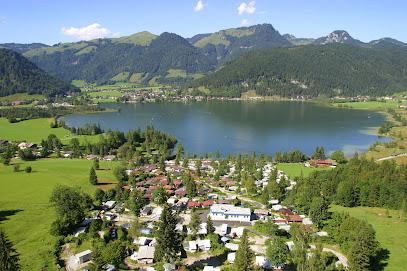
Matzenpark
Experience the tranquility of Matzenpark, a beautiful park in Reith im Alpbachtal, offering stunning views and outdoor activities in the heart of nature.
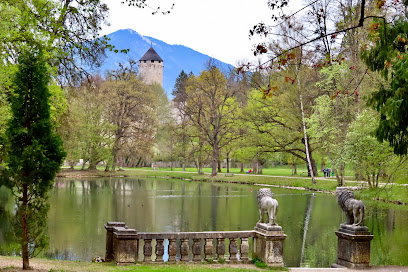
Kinderpark
Explore Kinderpark: A family-friendly haven in Reith im Alpbachtal, offering fun activities and breathtaking alpine views for all ages.
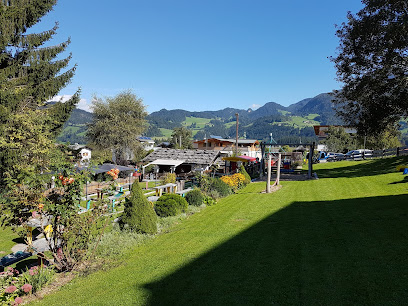
Badestrand Walchsee Ostufer
Experience the tranquil beauty of Badestrand Walchsee Ostufer, a perfect swimming lake in Tyrol, surrounded by nature and adventure.
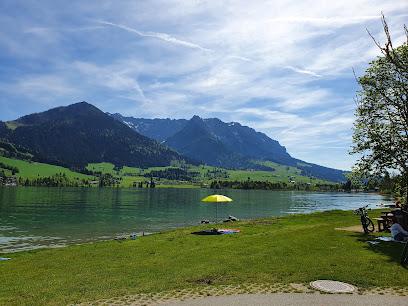
Promenade Walchsee Badestelle
Experience the breathtaking beauty of Promenade Walchsee Badestelle, a serene beach destination with stunning lake views and endless relaxation opportunities.
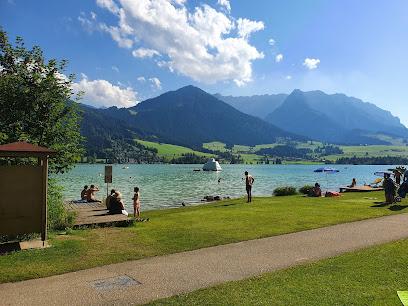
Walchsee
Discover the serene beauty of Walchsee, an alpine lake in Austria, perfect for swimming, hiking, and enjoying the stunning mountain scenery.
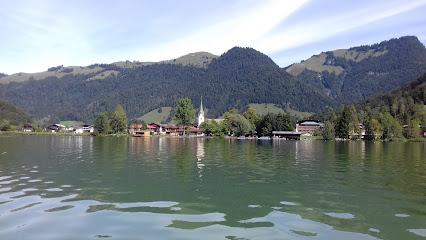
Schneekanonenversorgungsweiher
Experience the serene beauty of Schneekanonenversorgungsweiher in Alpbach, Austria, a unique reservoir blending nature and snow-making culture.
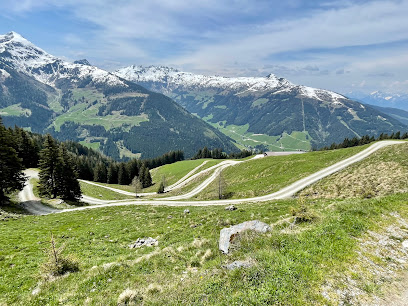
Das Walchsee Lakeside
Discover the beauty and tranquility of Das Walchsee Lakeside in the Austrian Alps, where adventure meets relaxation by the shimmering lake.
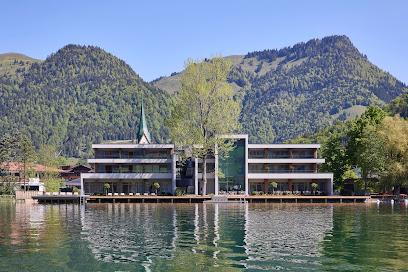
Sonnjoch
Experience the breathtaking beauty of Sonnjoch in Alpbach, Austria – a perfect blend of adventure, serenity, and Tyrolean culture.
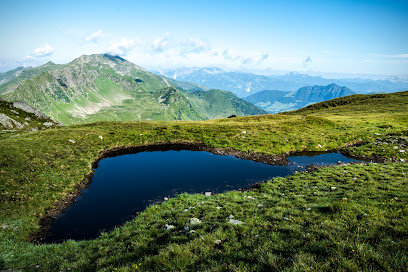
Mühlbachweg
Explore the scenic Mühlbachweg in Alpbach, Austria - a gateway to breathtaking views and rich cultural heritage in the heart of the Alps.
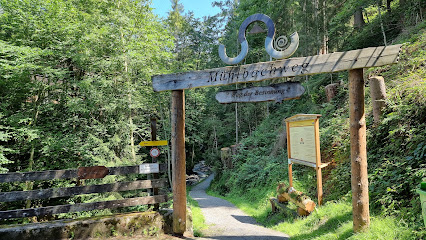
Bergbauernmuseum
Explore the rich heritage of alpine farming at Bergbauernmuseum in Alpbach, immersing yourself in Tyrolean traditions and breathtaking mountain views.
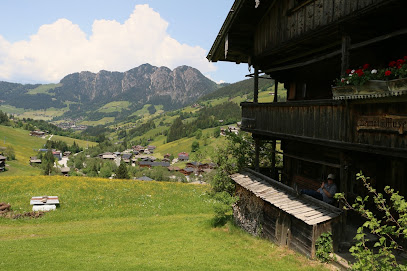
Speicherteich
Explore the serene Speicherteich in Alpbach, Austria, a hiking haven with breathtaking views and tranquil nature experiences.
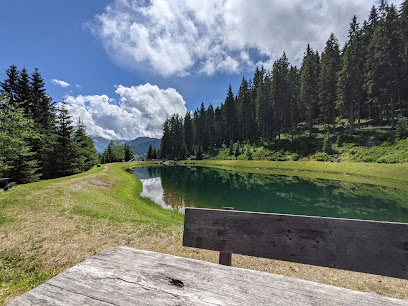
Wildwasserlauf
Dive into adventure at Wildwasserlauf, a premier rafting destination in Reith im Alpbachtal, surrounded by breathtaking alpine landscapes.
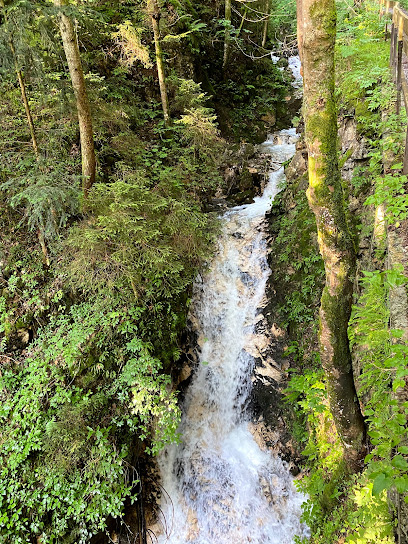
Essential places to dine
Dauerstoa Alm
Discover authentic Austrian cuisine amidst breathtaking mountain views at Dauerstoa Alm in Alpbach.
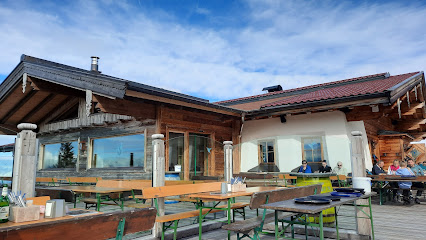
Der Böglerhof - pure nature spa resort
Experience unparalleled luxury and tranquility at Der Böglerhof - a premier nature spa resort in Alpbach offering breathtaking mountain views and exquisite dining.

Gut Matzen Cafe Restaurant Bar
Experience exquisite dining at Gut Matzen Cafe Restaurant Bar in Reith im Alpbachtal - where traditional flavors meet modern cuisine amidst stunning alpine scenery.
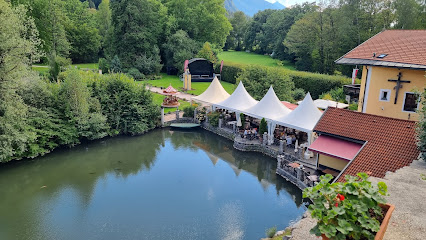
Pizzeria Don Camillo
Experience authentic Italian pizza at Pizzeria Don Camillo in Reith im Alpbachtal – where tradition meets flavor amidst breathtaking alpine views.
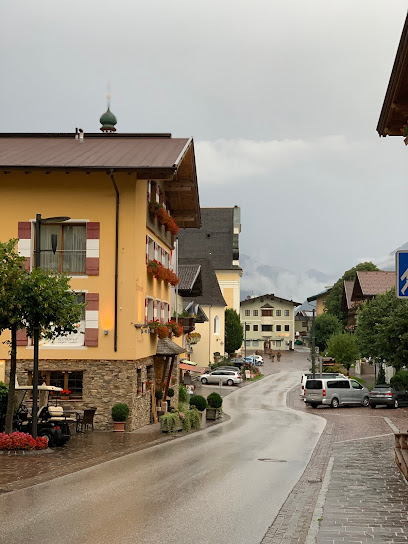
Restaurant Kirchenwirt
Experience authentic Austrian cuisine amidst stunning alpine scenery at Restaurant Kirchenwirt in Reith im Alpbachtal.
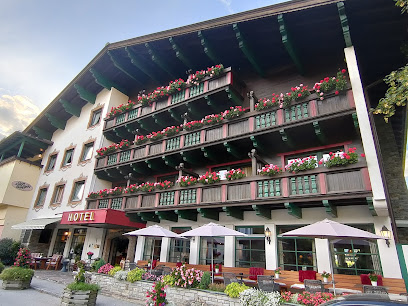
Gasthof Hornboden
Discover authentic Austrian flavors at Gasthof Hornboden in Alpbach, where tradition meets breathtaking alpine beauty.
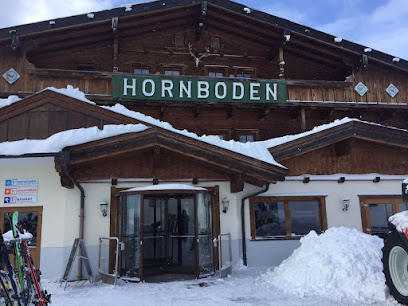
Dorfwirt Reith i.A
Discover authentic Austrian flavors in the heart of Reith im Alpbachtal at Dorfwirt Reith i.A, where tradition meets hospitality.
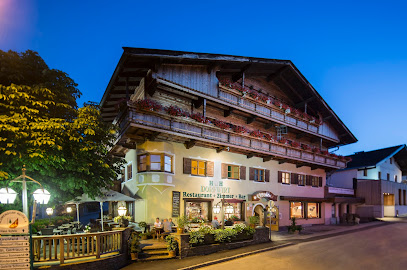
Zirmalm
Experience authentic Tyrolean cuisine in Alpbach at Zirmalm - where alpine flavors meet stunning mountain views.
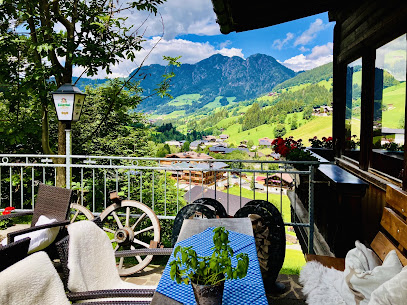
Jausenstation Zottahof
Discover Jausenstation Zottahof: A charming restaurant in Alpbach offering authentic Tyrolean cuisine amidst stunning alpine views.
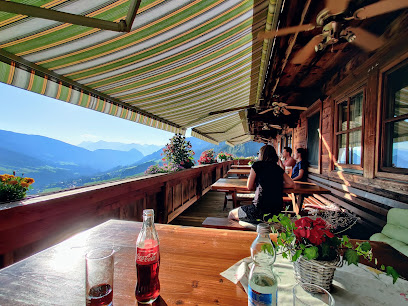
Palas Pizza & Pasta
Experience authentic Italian cuisine at Palas Pizza & Pasta in Reith im Alpbachtal—delicious pizzas and pastas await!
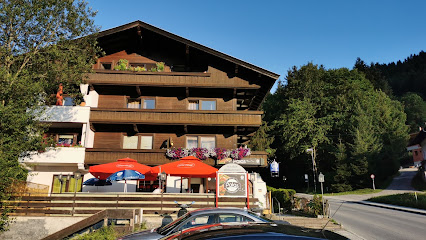
Asthütte
Discover Asthütte: A culinary haven in Alpbach serving traditional Austrian dishes amidst breathtaking alpine scenery.
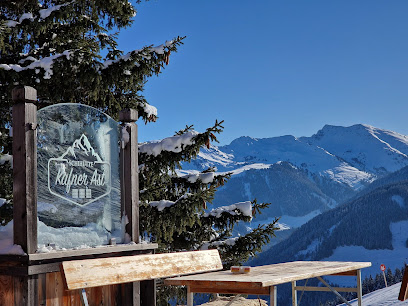
Alpbacherhof – Mountain & Spa Resort
Discover Alpbacherhof – where luxury meets nature in the heart of the Tyrolean Alps with wellness experiences and outdoor adventures.
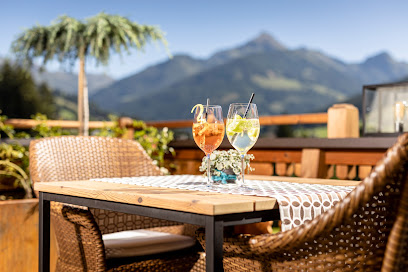
Boutique Hotel Die Alpbacherin
Discover unparalleled luxury at Boutique Hotel Die Alpbacherin in Alpbach - your gateway to alpine relaxation and adventure.
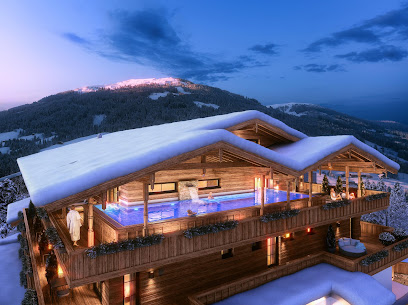
Postalm
Discover Postalm in Alpbach: A perfect blend of traditional Austrian cuisine and stunning alpine views awaits you.
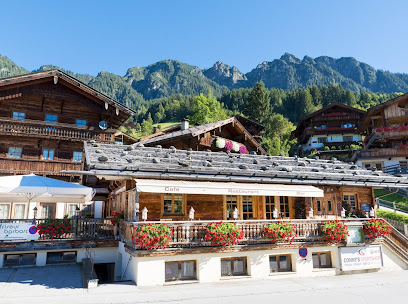
Böglalm
Discover Böglalm: Where Alpine Cuisine Meets Stunning Views in Alpbach's Heart.
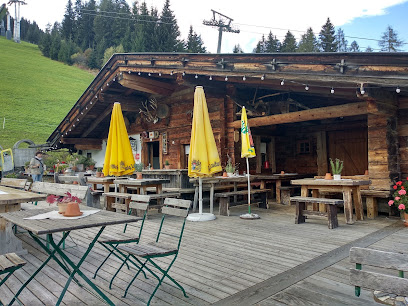
Markets, malls and hidden boutiques
Alpbachtal
Discover Alpbachtal: A paradise of alpine beauty, charming villages, and unforgettable outdoor adventures in the heart of Austria.
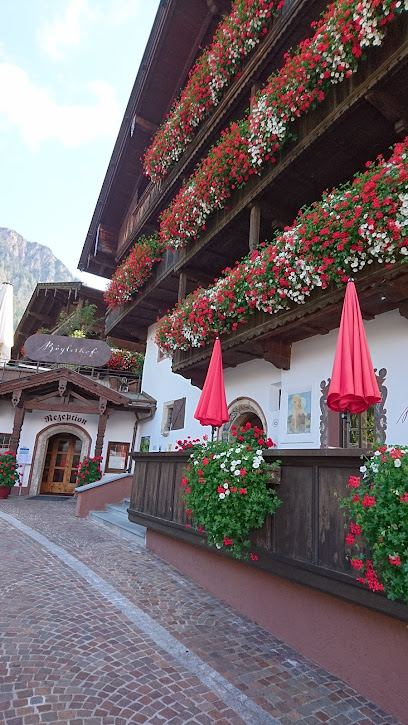
Giesswein Walkwaren AG
Explore fashion at Giesswein Walkwaren AG, where quality meets style in the heart of Brixlegg, Austria, for an unforgettable shopping experience.
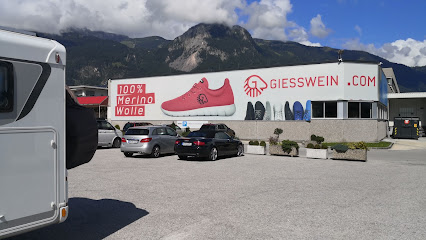
Giesswein - Trend-Store + Outlet
Explore the stylish Giesswein Trend-Store + Outlet in Brixlegg, where quality meets contemporary fashion in a charming Alpine setting.
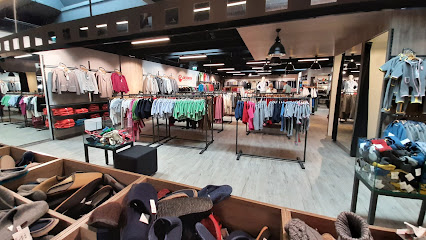
SPAR Reichsöllner Alpbach
Explore SPAR Reichsöllner Alpbach for diverse grocery options and local specialties in a charming alpine setting.
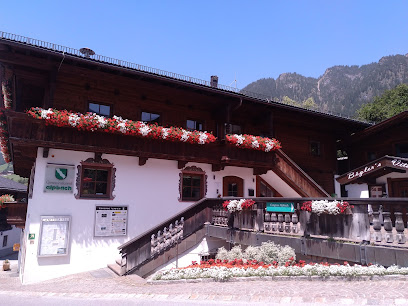
Sport H & N
Discover top-quality ski rentals and sporting goods at Sport H & N in Reith im Alpbachtal, perfect for your Alpine adventure.
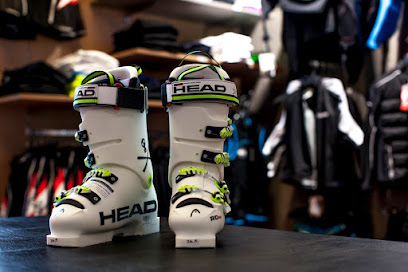
SPORT SCHWAIGHOFER
Explore the best outdoor gear and apparel at Sport Schwaighofer in Brixlegg, your ultimate destination for adventure in the Tyrolean Alps.
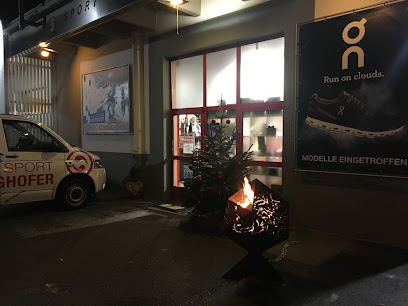
Baguette
Discover the delightful flavors of Austria at Baguette, a charming bakery and internet café in Reith im Alpbachtal.
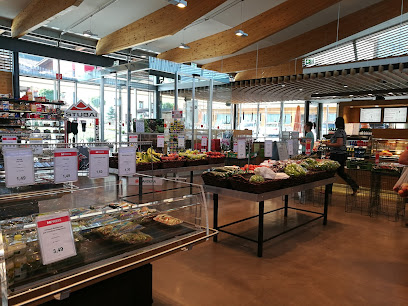
MPREIS
Explore the local flavors and essentials at MPREIS in Reith im Alpbachtal, your go-to supermarket for a delightful shopping experience.
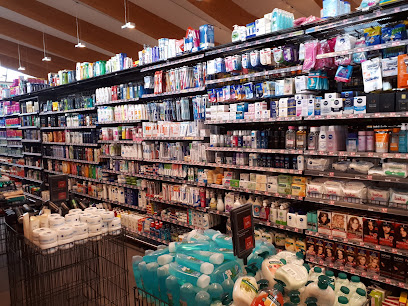
Skiverleih & Sportshop Alpbachtal - Hannes Lintner
Experience the best of winter sports at Skiverleih & Sportshop Alpbachtal, your go-to destination for ski rentals and quality sportswear in Alpbach.
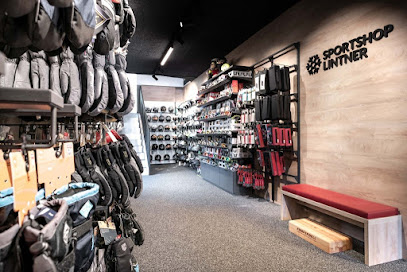
Connys Sport RENTALS Alpbach
Explore Alpbach with Connys Sport RENTALS, your trusted partner for ski and bicycle adventures in the heart of the Tyrolean Alps.
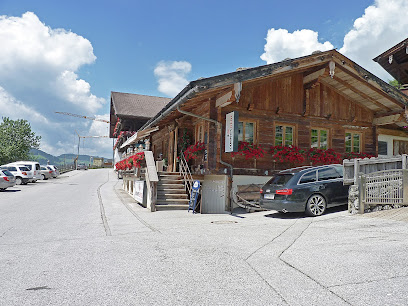
Connys Sport RENTALS Inneralpbach
Experience the thrill of skiing in the Tyrolean Alps at Connys Sport RENTALS, your trusted partner for adventure gear and expert guidance.
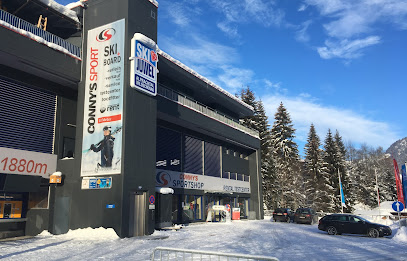
Genusswelt Rattenberg
Discover the flavors of Rattenberg at Genusswelt Rattenberg, where local delicacies and artisanal products await every food lover.
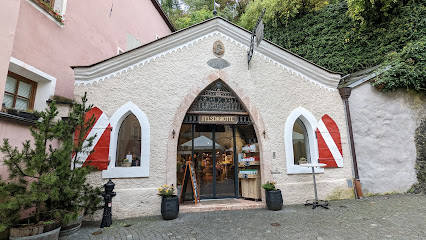
Lagerhaus Baustoffe
Explore an extensive selection of building materials and expert advice at Lagerhaus Baustoffe in scenic Alpbach, Austria.
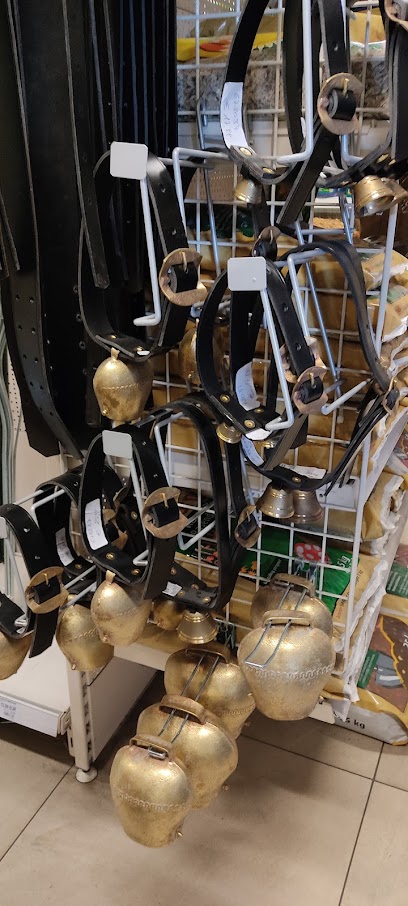
Alpbacher Dorfladen
Discover Alpbacher Dorfladen, your go-to natural goods store in the heart of Alpbach, offering organic delights and local specialties for every traveler.
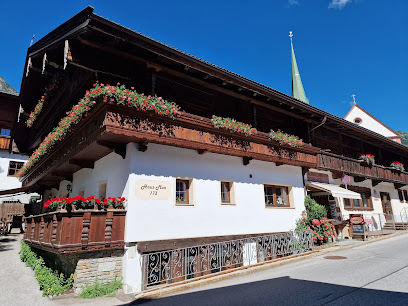
Esprit Store
Explore the stylish Esprit Store in Brixlegg for trendy women's clothing that blends fashion with sustainability.
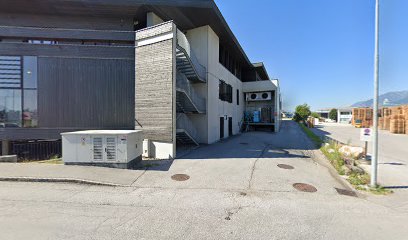
Essential bars & hidden hideouts
Der Böglerhof - pure nature spa resort
Discover the ultimate relaxation at Der Böglerhof, a luxurious nature spa resort in Alpbach, surrounded by breathtaking alpine scenery.

Gut Matzen Cafe Restaurant Bar
Discover the delightful Gut Matzen Cafe Restaurant Bar in Reith im Alpbachtal, offering a blend of local cuisine, stunning views, and a cozy atmosphere.
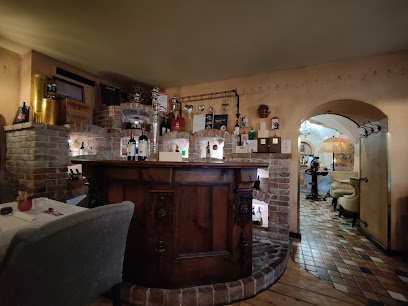
Zirmalm
Experience the taste of Tyrol at Zirmalm, a restaurant in Alpbach offering local cuisine and stunning mountain views.
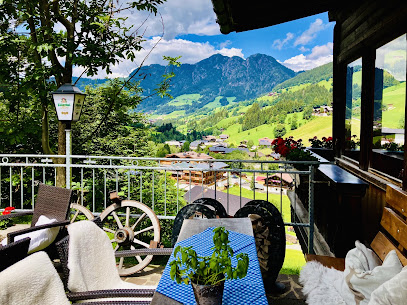
Jausenstation Zottahof
Experience the taste of the Alps at Jausenstation Zottahof, a charming restaurant in Alpbach offering authentic local cuisine and stunning mountain views.
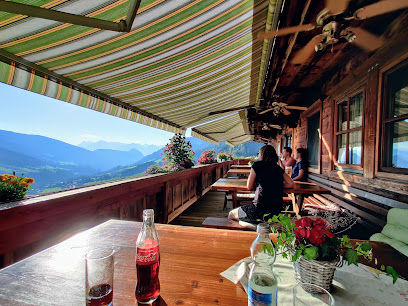
Gasthof Jakober GmbH
Experience the charm of Tyrolean hospitality at Gasthof Jakober, where comfort meets culinary delight in the heart of Alpbach.

Asthütte
Experience the authentic flavors of Austria at Asthütte, a cozy restaurant in the heart of Alpbach with stunning alpine views.
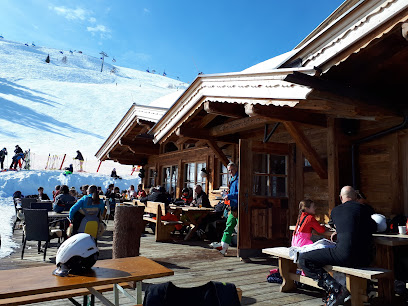
Böglalm
Experience authentic Tyrolean cuisine at Böglalm, where delicious dishes meet stunning alpine views in the heart of Alpbach.
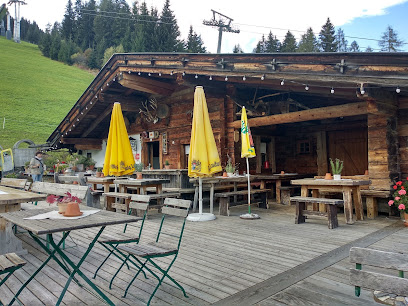
Connys – Original Tiroler Wirtshaus | Restaurant · Bed & Breakfast
Experience authentic Tyrolean cuisine in the heart of Alpbach at Connys – a charming restaurant and boarding house offering delightful flavors and warm hospitality.
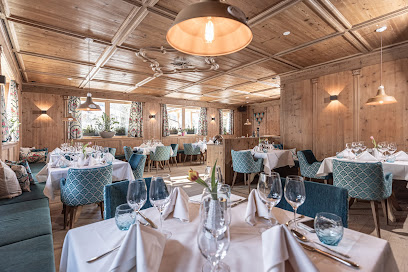
Wurmegg Hochleger
Discover the culinary delights of Wurmegg Hochleger, where exquisite Tyrolean cuisine meets breathtaking mountain views in Alpbach.
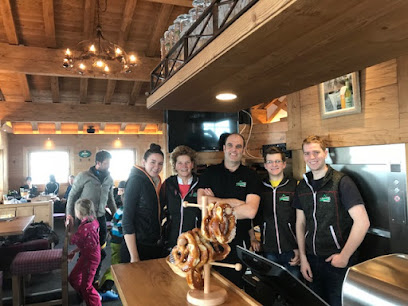
Pizzeria Messner's
Experience the best pizza in Alpbach at Pizzeria Messner's, where tradition meets breathtaking Alpine views.
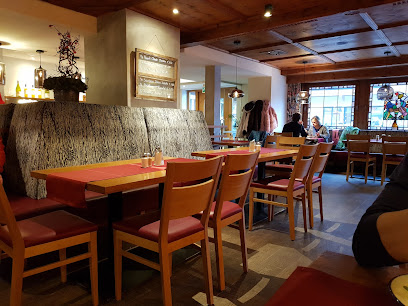
Joe's Salletl
Discover Joe's Salletl: A cozy grill and bar restaurant in Inneralpbach, serving authentic Austrian cuisine with stunning alpine views.
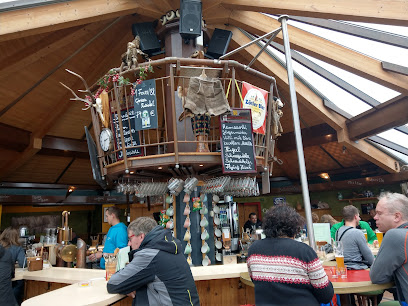
Lido PS
Experience the charm of Lido PS, a serene bar in Reith im Alpbachtal, where refreshing drinks and stunning views await every visitor.
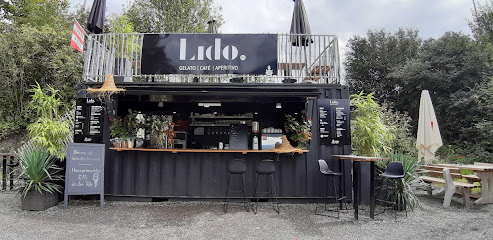
Almausschank Bischofer Käsalm / Sommer, Alpbach
Discover the flavors of Tyrol at Almausschank Bischofer Käsalm, a mountain cabin restaurant and cheese shop in beautiful Alpbach.
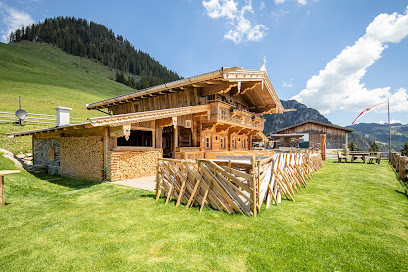
Jausenstüberl Oberthaler
Discover the flavors of Tyrol at Jausenstüberl Oberthaler, where authentic Austrian cuisine meets stunning alpine views.
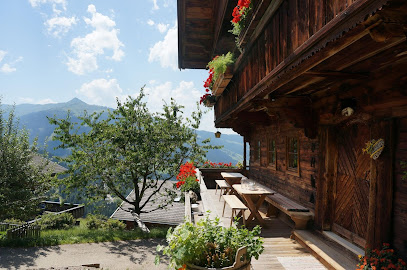
Local Phrases about Alpbachtal
-
- HelloServus
[ser-voos] - GoodbyeAuf Wiedersehen
[ouf vee-der-zay-en] - YesJa
[ya] - NoNein
[nine] - Please/You're welcomeBitte
[bi-teh] - Thank youDanke
[dahn-keh] - Excuse me/SorryEntschuldigung
[ent-shool-dee-goong] - How are you?Wie geht es Ihnen?
[vee gayt es een-en] - Fine. And you?Gut. Und Ihnen?
[goot oond een-en] - Do you speak English?Sprechen Sie Englisch?
[shpre-khen zee ang-leesh] - I don't understandIch verstehe nicht
[ikh fer-shtay-eh neekt]
- HelloServus
-
- I'd like to see the menu, pleaseIch hätte gerne die Speisekarte, bitte
[ikh hat-teh gehr-neh dee shpy-ze-kar-teh, bi-teh] - I don't eat meatIch esse kein Fleisch
[ikh es-seh kine fli-sh] - Cheers!Prost!
[prohst] - I would like to pay, pleaseIch möchte bitte zahlen
[ikh mehrk-teh bi-teh tsah-len]
- I'd like to see the menu, pleaseIch hätte gerne die Speisekarte, bitte
-
- Help!Hilfe!
[hil-feh] - Go away!Geh weg!
[geh vehg] - Call the Police!Rufen Sie die Polizei!
[roo-fen zee dee po-lee-tsay] - Call a doctor!Rufen Sie einen Arzt!
[roo-fen zee i-nen ahrts] - I'm lostIch habe mich verlaufen
[ikh hah-beh meekh fer-lou-fen] - I'm illMir ist schlecht
[meer ist shle-kht]
- Help!Hilfe!
-
- I'd like to buy...Ich würde gerne kaufen...
[ikh vur-deh gehr-neh kou-fen] - I'm just lookingIch schaue nur
[ikh shou-eh noor] - How much is it?Wie viel kostet es?
[vee feel kohs-tet es] - That's too expensiveDas ist zu teuer
[dahs ist tsoo toy-er] - Can you lower the price?Können Sie den Preis senken?
[keu-nen zee den prees sen-ken]
- I'd like to buy...Ich würde gerne kaufen...
-
- What time is it?Wie spät ist es?
[vee shpeht ist es] - It's one o'clockEs ist ein Uhr
[es ist iyn oor] - Half past (10)Halb zehn
[halb tsayn] - MorningMorgen
[mor-gen] - AfternoonNachmittag
[nahk-mit-tahk] - EveningAbend
[ah-bent] - YesterdayGestern
[gehs-tern] - TodayHeute
[hoi-teh] - TomorrowMorgen
[mor-gen] - 1Eins
[iyns] - 2Zwei
[tsvai] - 3Drei
[dry] - 4Vier
[feer] - 5Fünf
[fuhnf] - 6Sechs
[zeks] - 7Sieben
[zee-ben] - 8Acht
[ahkt] - 9Neun
[noyn] - 10Zehn
[tsayn]
- What time is it?Wie spät ist es?
-
- Where's a/the...?Wo ist ein/der...?
[vo ist iyn/dehr] - What's the address?Was ist die Adresse?
[vas ist dee ah-dreh-say] - Can you show me (on the map)?Können Sie es mir zeigen (auf der Karte)?
[keu-nen zee es meer tsay-gen (ouf dehr kar-teh)] - When's the next (bus)?Wann kommt der nächste (Bus)?
[van kohmt dehr nekhs-teh (boos)] - A ticket (to ....)Eine Fahrkarte (nach ...)
[i-nuh fahr-kar-teh (nakh)]
- Where's a/the...?Wo ist ein/der...?
History of Alpbachtal
-
The history of Alpbachtal dates back to the early Middle Ages, with evidence of settlements in the region as early as the 8th century. The valley was part of the Bavarian duchy before it became a part of the Tyrolean County in the 12th century. During medieval times, Alpbachtal was primarily an agricultural area, with farming and cattle breeding being the main sources of livelihood for the inhabitants.
-
In the 15th and 16th centuries, Alpbachtal experienced a significant economic boost due to the mining industry. The discovery of silver and copper deposits in the region led to the establishment of several mining operations. This era brought wealth and development to the valley, as well as an influx of workers and merchants. The town of Brixlegg, in particular, became a center for mining activities, and its prosperity is evidenced by the well-preserved houses and buildings from this period.
-
Alpbachtal is home to several historic churches and religious landmarks that reflect the valley's rich cultural heritage. The St. Oswald Church in Alpbach, built in the 15th century, is renowned for its Gothic architecture and beautiful frescoes. The Church of Our Lady in Brixlegg, dating back to the 13th century, showcases Romanesque and Gothic elements and houses valuable artworks. These religious sites have been integral to the community's spiritual life and have played a significant role in the region's cultural history.
-
The valley of Alpbachtal has a long-standing tradition of craftsmanship, particularly in woodworking and pottery. The region's artisans have been known for their skill in creating intricate wood carvings, furniture, and everyday items. The craft of pottery, especially in the town of Kramsach, has a history that goes back several centuries. The Tiroler Bauernhöfe Museum in Kramsach offers visitors a glimpse into the traditional ways of life and the craftsmanship that has been passed down through generations.
-
In the 20th century, Alpbach gained international recognition as the host of the European Forum Alpbach, an annual interdisciplinary conference that brings together leaders, thinkers, and scholars from around the world. Founded in 1945, the forum has become a significant event for dialogue on political, scientific, and cultural issues. The picturesque village of Alpbach, with its traditional wooden architecture and stunning alpine scenery, provides an inspiring backdrop for this gathering of minds.
-
Today, Alpbachtal is renowned for its tourism, attracting visitors with its scenic landscapes, outdoor activities, and cultural heritage. The region has developed a robust infrastructure to support tourism, including ski resorts, hiking trails, and wellness centers. Despite modern developments, Alpbachtal has retained its traditional charm, with strict building regulations ensuring that new constructions blend harmoniously with the historic wooden architecture. The valley's commitment to preserving its cultural and natural heritage makes it a unique and attractive destination for travelers.
Alpbachtal Essentials
-
Alpbachtal is located in the Tyrol region of Austria. The nearest international airport is Innsbruck Airport, approximately 55 kilometers away. From Innsbruck, you can take a train to Brixlegg, which is the nearest train station to Alpbachtal. The journey by train takes about 45 minutes. Alternatively, you can rent a car and drive to Alpbachtal, which will take around 45 minutes as well. For those coming from Munich, Germany, the drive to Alpbachtal is about 1.5 to 2 hours.
-
Once in Alpbachtal, the best way to get around is by using the local bus services, which are efficient and connect all major attractions and villages in the valley. Buses run frequently and are a convenient option. For those who prefer more flexibility, renting a car is also a viable option, allowing you to explore the surrounding areas at your own pace. Cycling is another popular mode of transportation, especially during the summer months. E-bikes are available for rent in various locations.
-
The official currency in Austria is the Euro (EUR). Credit and debit cards are widely accepted in hotels, restaurants, and shops. However, it is advisable to carry some cash, especially when visiting smaller establishments or rural areas. ATMs are readily available in Alpbachtal, and you can withdraw Euros using your international credit or debit cards.
-
Alpbachtal is generally a very safe destination for tourists. Crime rates are low, and the area is known for its friendly and welcoming atmosphere. However, as with any travel destination, it is important to take standard precautions such as keeping an eye on your belongings in crowded places and avoiding isolated areas at night. There are no specific high-crime areas targeting tourists in Alpbachtal.
-
In case of emergency, dial 112 for immediate assistance. This number will connect you to the local emergency services including police, fire brigade, and medical assistance. Alpbachtal has medical facilities and pharmacies where you can seek help for minor health issues. It is highly recommended to have travel insurance that covers medical emergencies. The nearest hospital is located in Kufstein, approximately 30 kilometers away.
-
Fashion: Do dress in layers, as the weather can change quickly. Comfortable walking shoes are essential for exploring. Avoid wearing overly casual clothing in upscale restaurants. Religion: Do respect local customs and traditions. When visiting churches, dress modestly and avoid loud behavior. Public Transport: Do validate your ticket before boarding the bus. Don't eat or drink on public transport. Greetings: Do greet people with a friendly 'Grüß Gott' or 'Hallo'. A handshake is common when meeting someone for the first time. Eating & Drinking: Do try local delicacies such as Tyrolean Gröstl and Kaiserschmarrn. Don't forget to tip; rounding up the bill or leaving 5-10% is customary.
-
To experience Alpbachtal like a local, visit the weekly farmers' markets where you can buy fresh produce and local specialties. Engage with the locals, as they are often friendly and willing to share stories about the region's history and culture. Take advantage of the Alpbachtal Seenland Card, which offers free access to many attractions and activities. Don't miss hiking the scenic trails, especially the ones leading to the picturesque Zireiner See and the beautiful Alpbach village, known for its traditional wooden architecture.
Trending Landmarks in Alpbachtal
-
Alpbacher - Talstation Wiedersbergerhornbahn
-
Der Böglerhof - pure nature spa resort
-
Ski Juwel Alpbachtal Wildschönau
-
Matzenpark
-
Lauserland
-
Alpbachtaler Lauser-Sauser
-
Juppi Zauberwald
-
Blick in die Zillertaler Alpen
-
Top of Alpbachtal
-
St. Oswald Catholic Church
-
Alpbachtal Tourismus - Tourismusbüro Alpbach
-
Bergbauernmuseum
-
Speicherteich
-
Wildwasserlauf
-
Musikkapelle
Nearby Cities to Alpbachtal
-
Things To Do in Innsbruck
-
Things To Do in Zell am See
-
Things To Do in Munich
-
Things To Do in Salzburg
-
Things To Do in Bad Gastein
-
Things To Do in Hallstatt
-
Things To Do in St. Anton am Arlberg
-
Things To Do in Dornbirn
-
Things To Do in Bregenz
-
Things To Do in Davos
-
Things To Do in Kranjska Gora
-
Things To Do in Schellenberg
-
Things To Do in Ruggell
-
Things To Do in Mauren
-
Things To Do in Eschen










